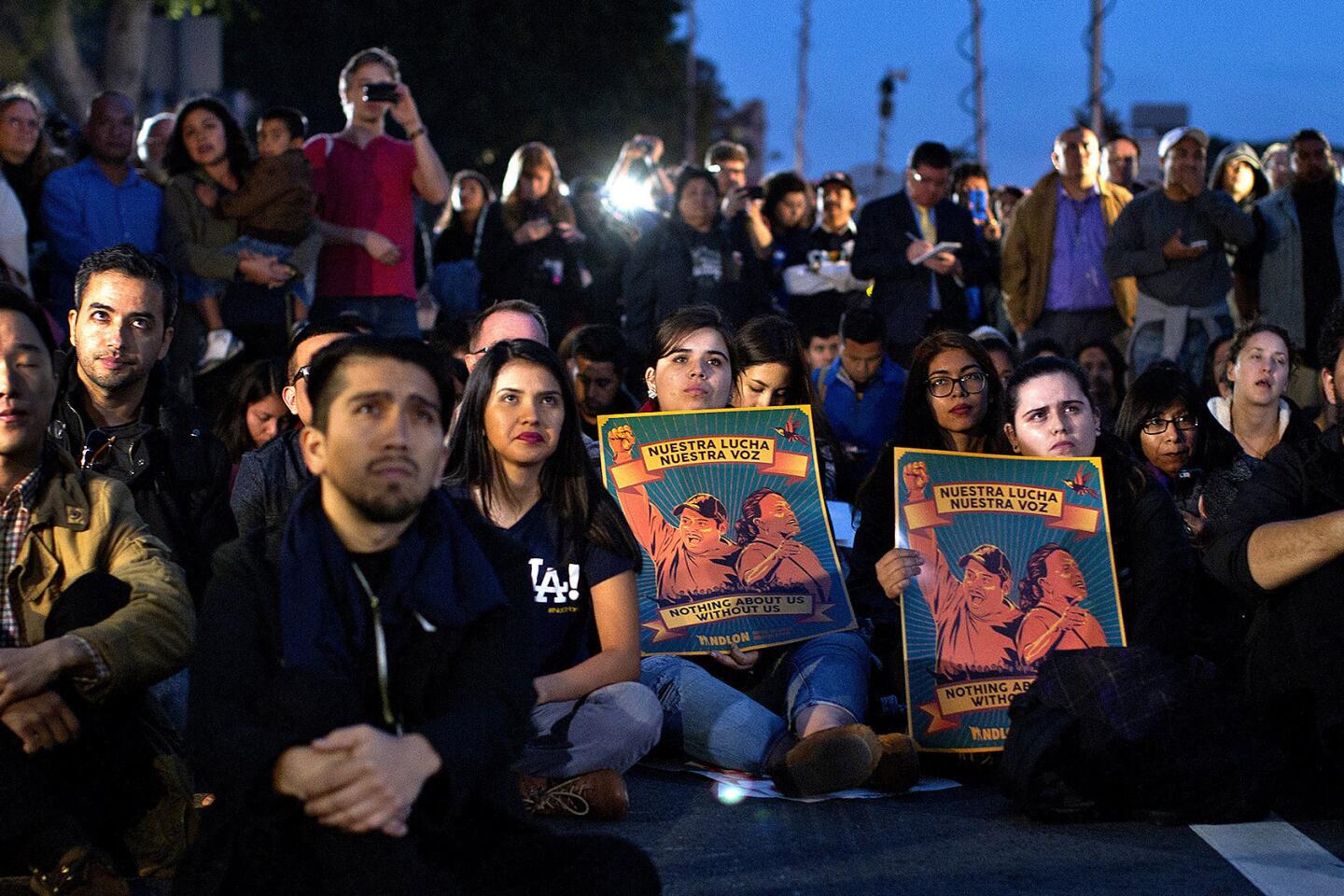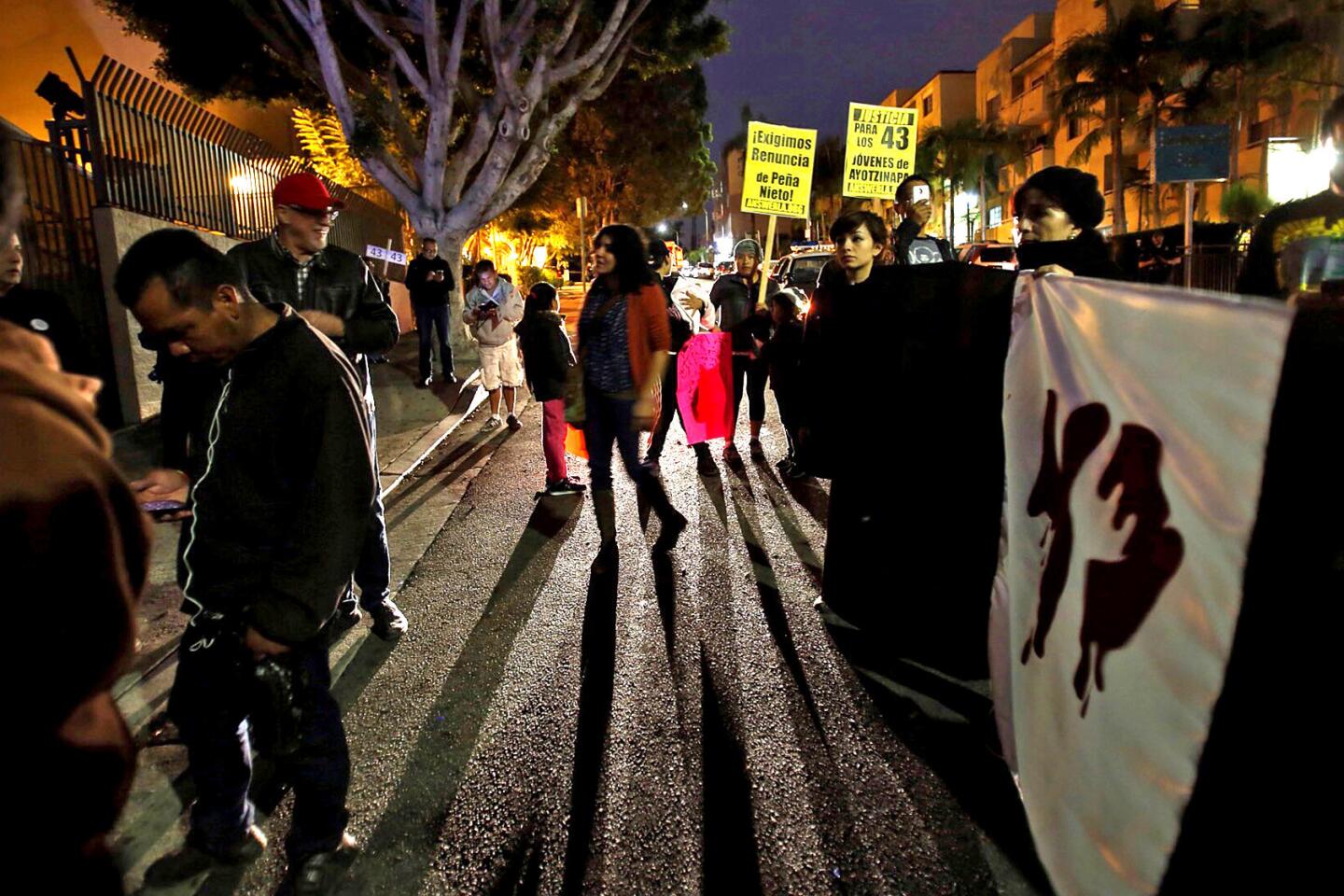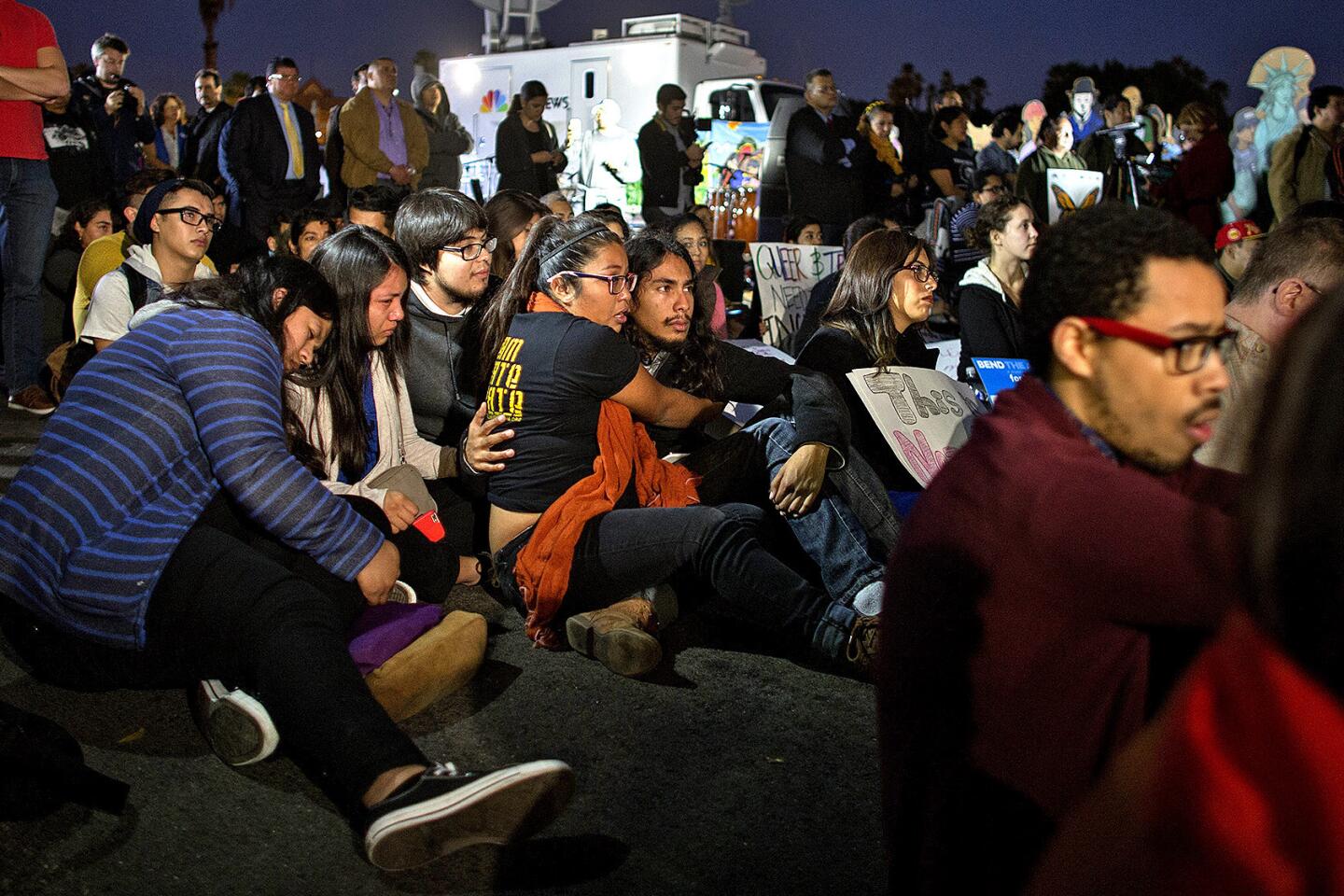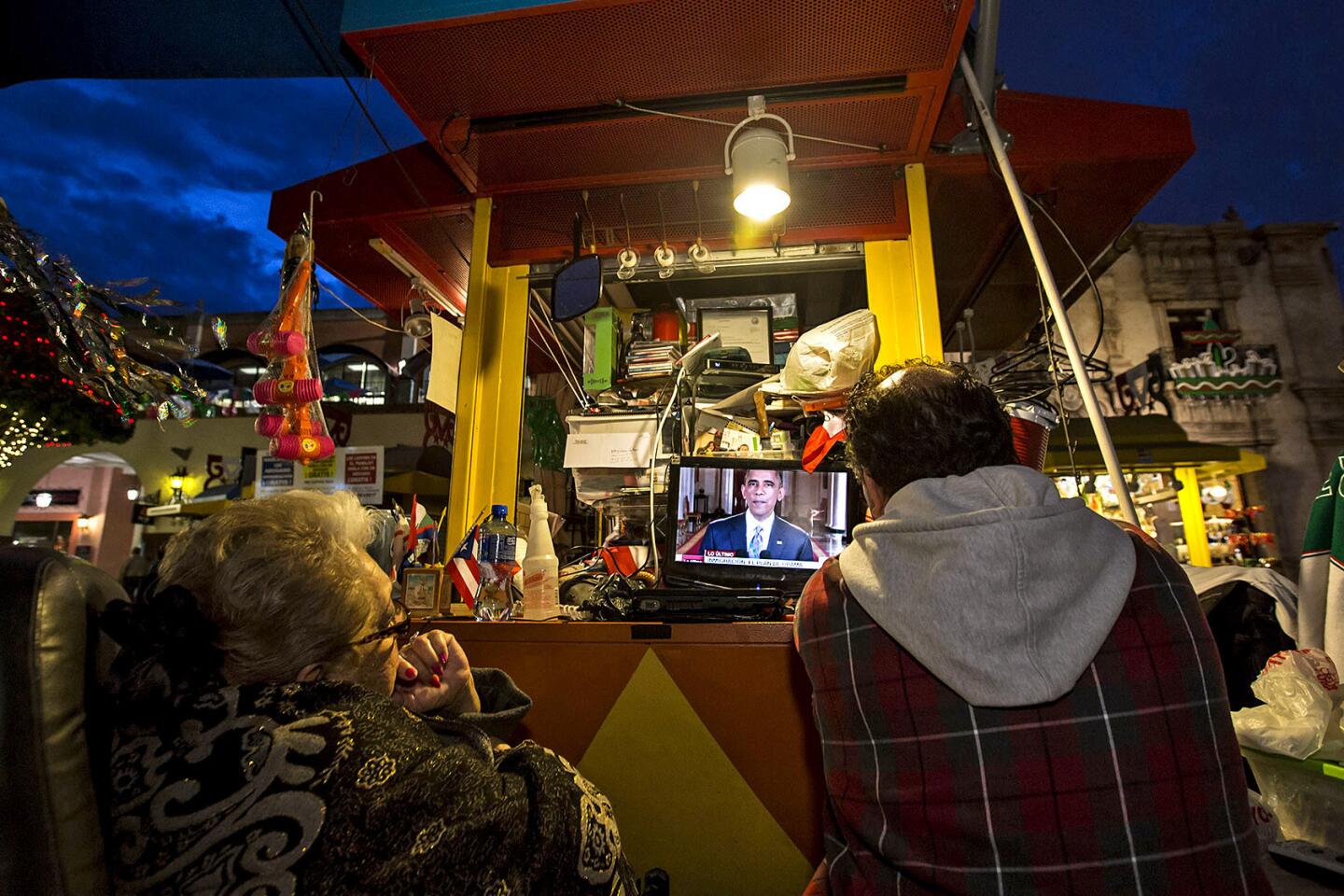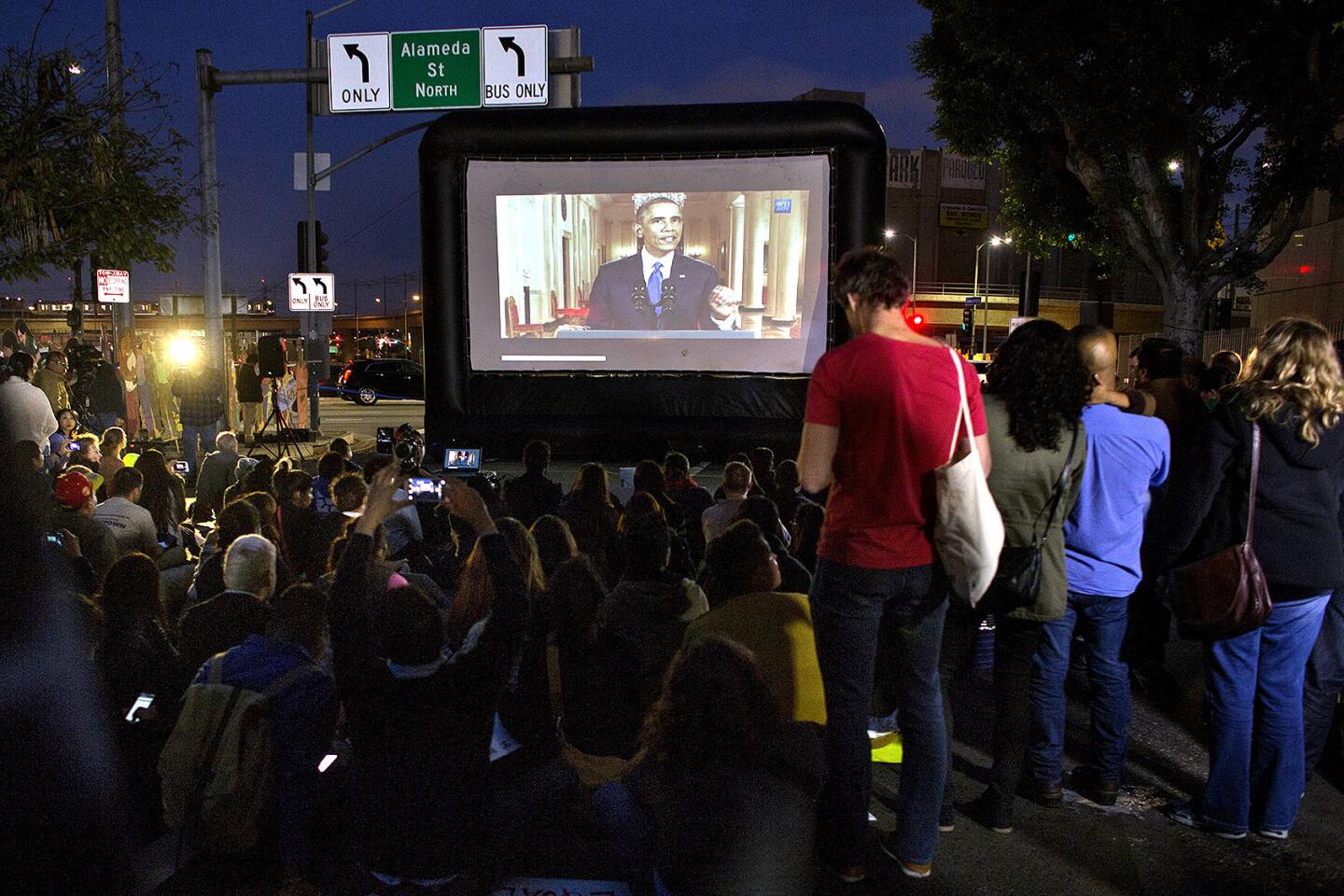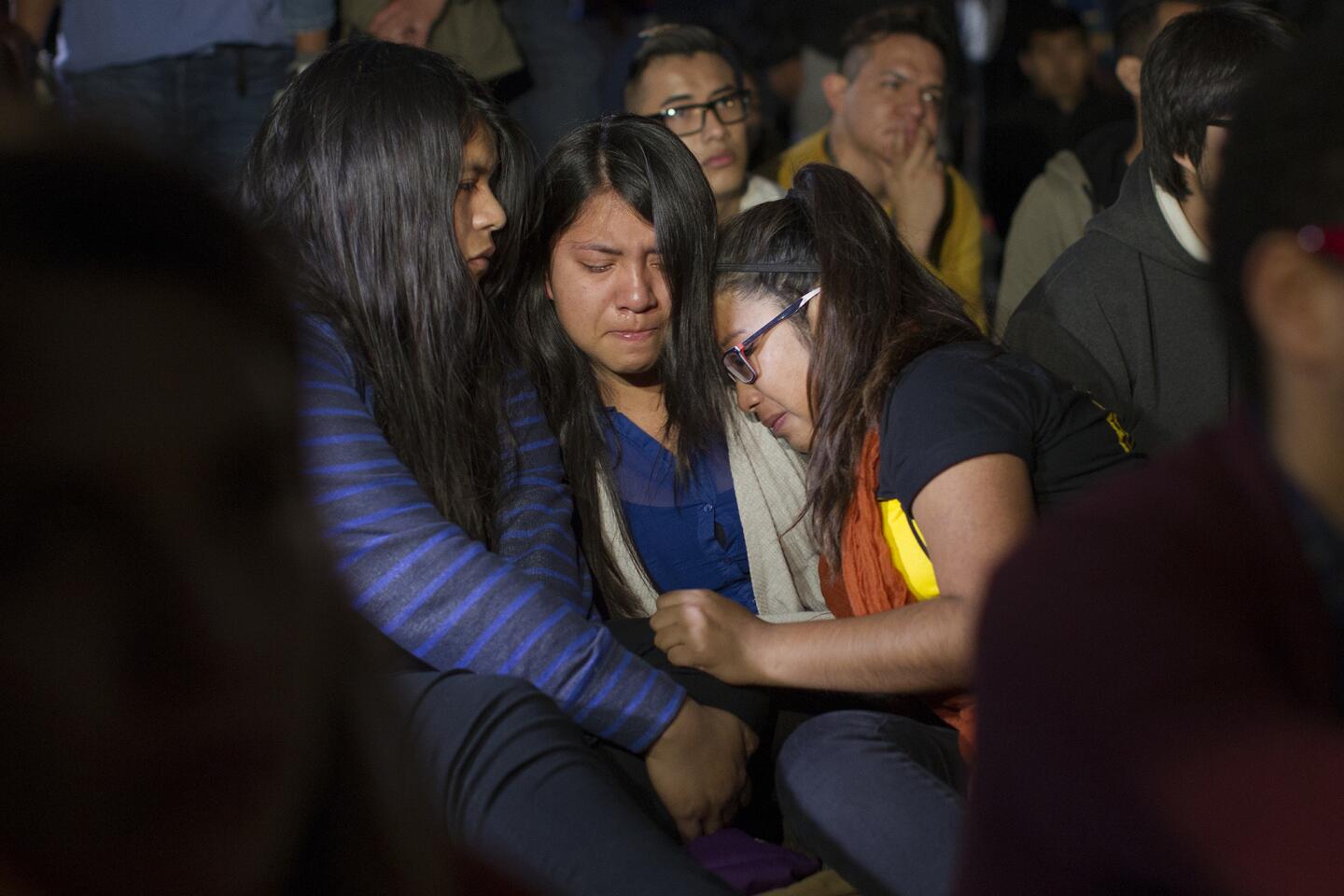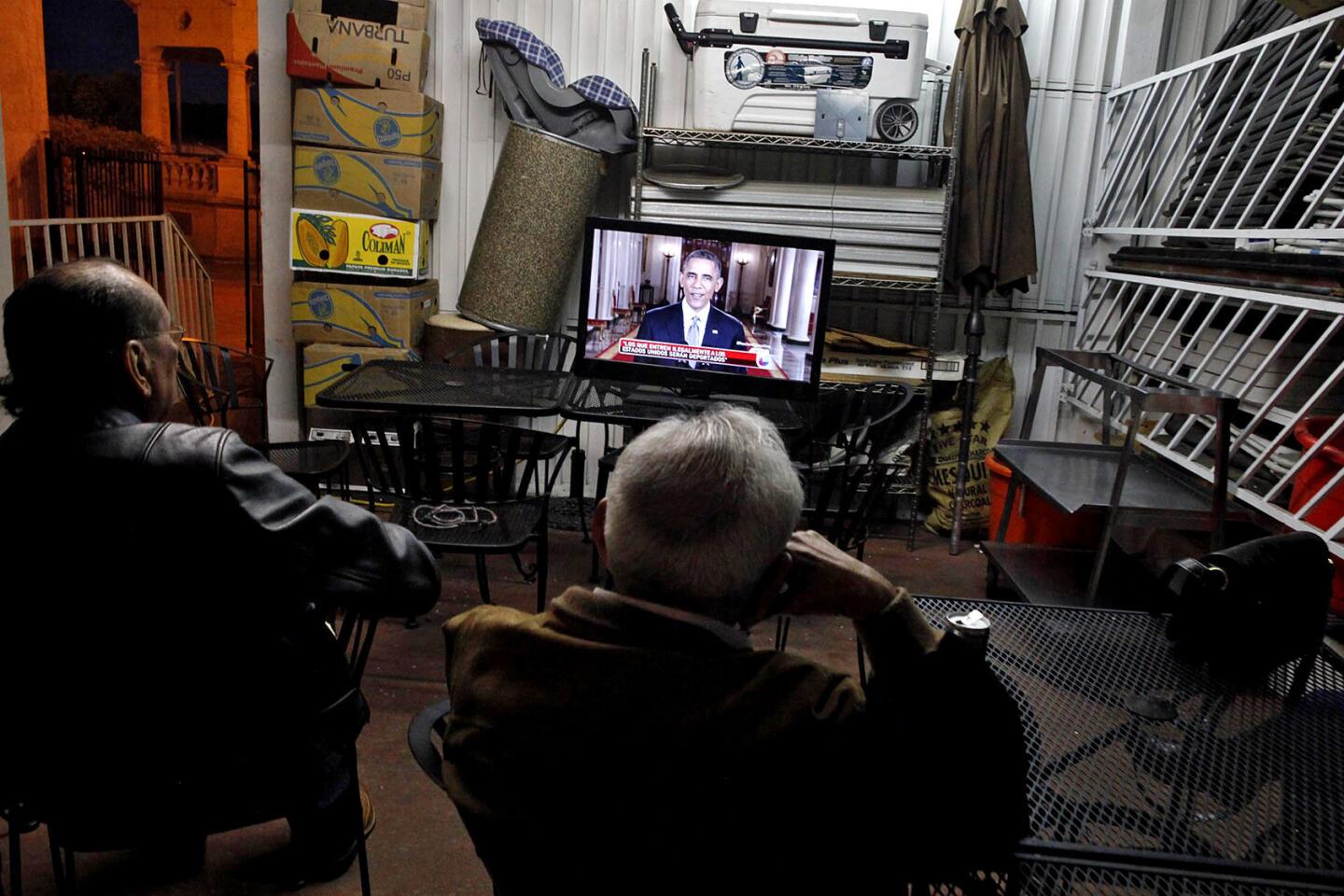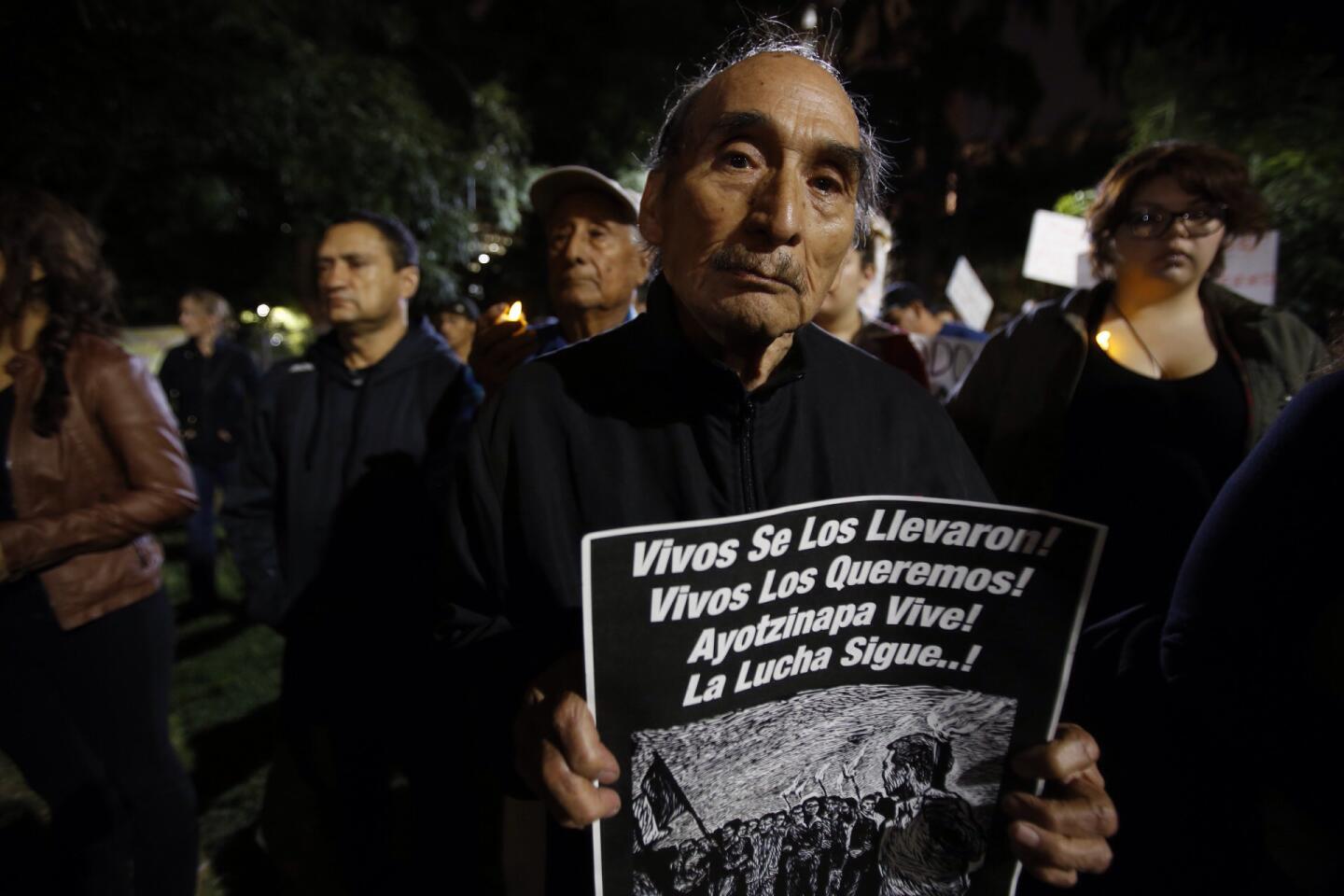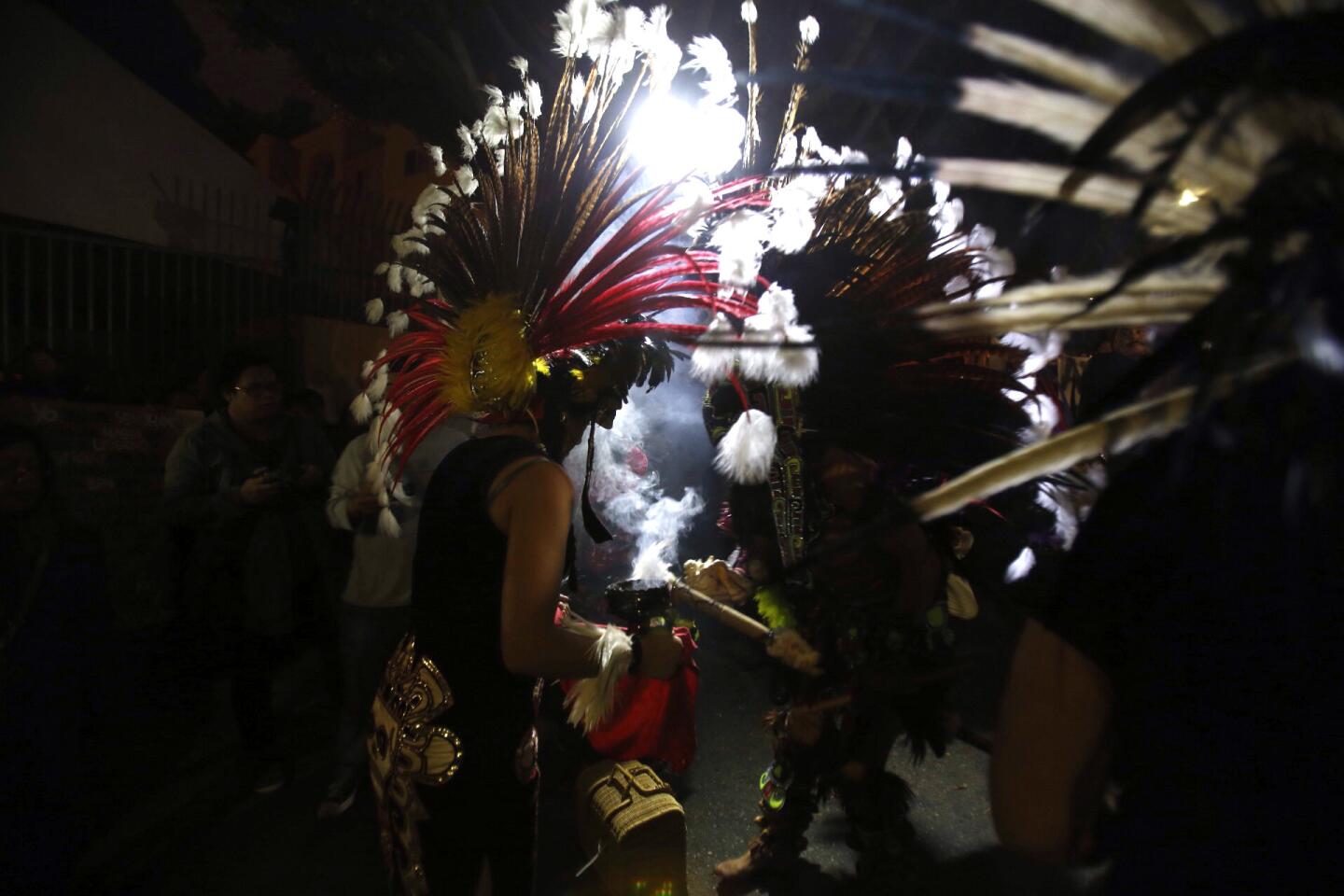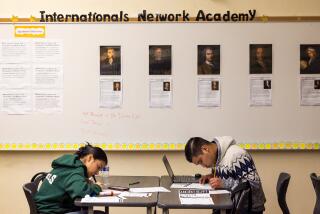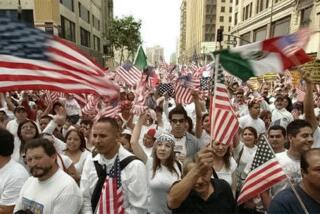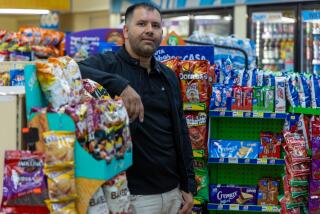In L.A., relief and joy greet Obama’s immigration plan
From tiny televisions at home to large makeshift screens on public lawns, Southern Californians gathered Thursday night to listen as President Obama granted temporary deportation relief to as many as 5 million immigrants.
“Finally,” said Martha Alvarado, a 27-year-old engineering student from El Salvador. “Finally.”
With tears in her eyes, she watched the announcement outside the federal prison in downtown Los Angeles, where people had gathered. The changes will allow Alvarado, who came to the U.S. at 17, to apply for a work permit and begin her career.
Like her, many sighed with relief to finally be able to come out of the shadows. Others seeking broader immigration reform protested, calling Obama’s plan far too limited.
“We’re going to fight to defend those who qualify,” said Pablo Alvarado, director of the National Day Laborer Organizing Network. “And we’re going to defend the millions of people who have been left out.”
Under the new government program, parents of either U.S. citizens or long-term permanent residents will be permitted to apply for a work permit and a three-year protection from deportation. Applicants will have to prove they have been in the country for at least five years.
The president is also ordering an expansion of a program that defers deportation for people who arrived in America as children before June 2007.
“These people — our neighbors, our classmates, our friends — they did not come here in search of a free ride or an easy life,” Obama said. “They came to work and study and serve in our military, and above all, contribute to America’s success.”
Citlali Gomez was among those who said she felt some of her deepest fears melting away after Obama spoke.
The 34-year-old came to the U.S. 12 years ago and started a family. Life is better in America, she said, though she fears driving and entering government buildings. Her cousin was deported.
But Obama’s announcement gave her hope and a reason to “celebrate a little bit.”
“We’re going to leave the darkness,” Gomez said. “We’re going to stop being scared.”
Some people, like Bob Davis, 81, of Northern California, had a difficult time watching the speech. The president’s words stung.
Less than a month ago, Davis’ grandson, a sheriff’s deputy, was killed by a man who had been deported multiple times.
“I respect Latinos,” Davis said. “They work their fannies off, but there has to be a legal process. Letting in 5 million people like that just encourages more lawlessness.”
Obama’s action will take away much-needed jobs from Americans, said Joe Guzzardi, national media director for Californians for Population Stabilization, a Santa Barbara-based organization pushing for stricter immigration laws.
“Why is it necessary to reward them with government IDs and work permits that are only going to hurt the legal people who are trying so hard to get a job or hold on to a job?” he said.
On a night when many were trying to figure out what the president’s news would mean for them and their families, the biggest rally in Los Angeles had little to do with immigration.
Hundreds gathered outside the Mexican Consulate in Westlake to demonstrate about 43 college students who went missing in Mexico in September and are now presumed dead, possibly the victims of a massacre.
There, among the shouts and protest signs, there was hardly any mention of Obama’s speech, some said perhaps deliberately.
In Koreatown, a dozen people gathered at the Korean Resource Center to hear the announcement.
Most of the discussion over immigration reform revolves around Latinos, but thousands of Asians will also be affected across the state.
S.J. Lee, a salesman from Buena Park, was happy to hear he would probably qualify for help. But his wife, here on an international student visa, would not be covered.
Thirteen years ago, Lee, 30, came from South Korea with his parents on a tourist visa. He never left. He has two children but was never “really able to build a life” because he lived in fear.
“We wish more of our community members could experience relief,” Lee said.
In Santa Ana, Diana Cid was excited to hear about the potential of Obama’s action. She listed the loved ones who lived in the country illegally: a brother-in-law from Honduras who works as a house painter in Riverside; two cousins in high school in San Bernardino; a third cousin struggling to come to terms with not having a stable job.
“We definitely worry about the people around us who are always wondering, ‘Will it happen to me?’” said Cid, speaking about the fear of deportation.
In Pasadena, Lidia Rosa, 32, heard the news by phone from her sister. She came from Honduras in 2005 and has struggled to find work without a Social Security number.
She was so happy she danced with a friend and yelled, “We qualify, we qualify.”
Rosa later went to the gathering outside the federal prison downtown to be around others. There, activists had hired a band to celebrate, at least for the night.
“We desperately needed this,” said Erick Huerta, whose parents, uncles and aunts may be helped by the changes. “But there are still so many other things that need fixing.”
esmeralda.bermudez@latimes.com
Times staff writers Ruben Vives, Kate Linthicum and Angel Jennings contributed to this report.
More to Read
Start your day right
Sign up for Essential California for news, features and recommendations from the L.A. Times and beyond in your inbox six days a week.
You may occasionally receive promotional content from the Los Angeles Times.
